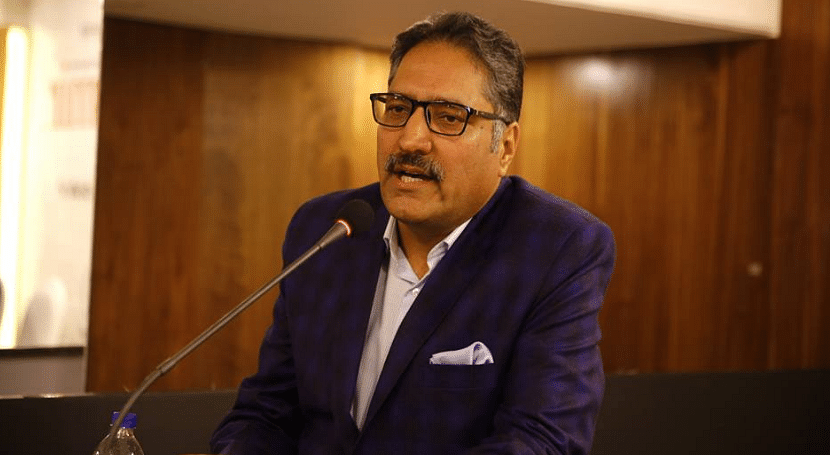The Rising Kashmir editor-in-chief, shot dead this week, was an ardent advocate of dialogue to resolve the decades-long conflict in the Valley.
New Delhi: Rising Kashmir editor-in-chief Shujaat Bukhari, assassinated last week in Srinagar, found no mention at a media conference organised by the RSS weekly Panchjanya a day after his death, even as the paper he founded was branded “separatist”.
At an event titled ‘The illusion of fake news’, held at Indian Institute of Mass Communication (IIMC), Delhi, journalist Abha Khanna, the media director at thinktank Jammu Kashmir Study Centre, said: “All these local Kashmir newspapers are separatist.” As she did so, she pointed to a slide in her presentation that listed newspapers like Rising Kashmir and Greater Kashmir.
Khanna spoke at length about the “fake news trade” in Jammu & Kashmir, and claimed the Valley was a victim of “agenda-driven journalism where facts are presented in a way that creates an anti-India narrative”.
The death of Bukhari, a veteran journalist and passionate champion of Kashmiris’ rights, Thursday was criticised in one voice across the political spectrum, as friends, colleagues and rivals grieved for a man who constantly backed dialogue for a peaceful resolution to the decades-long conflict.
Other participants of the conference included Panchjanya editor Hitesh Shankar, Manoj Verma and Anurag Punetha of Lok Sabha TV, and IIMC director general K.G. Suresh.
In a video presentation, Punetha sought to highlight instances where the media had “pushed fake news into the mainstream”, citing a magazine’s reportage on the death of the late CBI judge B.H. Loya, who was hearing the case of suspected terrorist Sohrabuddin Sheikh’s alleged fake encounter.
Other cases cited were the fatal assault on a Dalit ragpicker outside a Gujarat factory last month, the Kolkata nun rape case, and the vandalism of churches just before the 2015 Delhi assembly election, with the video including the reportage of different media houses on the episodes.
Verma, meanwhile, sought to justify the now-scrapped order of the information & broadcasting ministry that threatened journalists accused of propagating ‘fake news’ with the suspension of their government accreditation. The order had drawn a severe backlash, especially in light of the absence of a clear definition of fake news.
Referring to the criticism, Verma said media personnel “didn’t act against fake news and didn’t allow the government to do so either”.
Concluding the event, Suresh urged journalists to report from the field in order to check fake news. “Reporters should go outside their AC cabins in order to file a report, which in turn will decrease the number of fake news cases,” he added.
